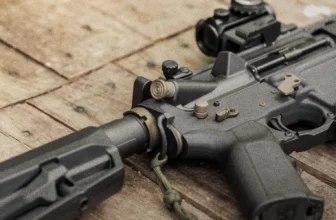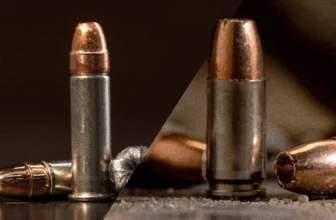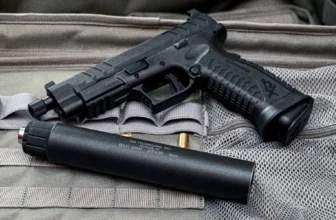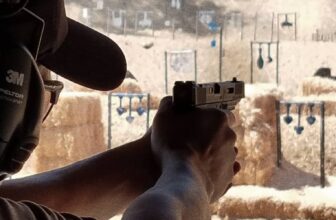Content
44% of Americans live in a household with a gun. Many of these gun owners keep a weapon around for self-defense.
To gun owners who are concerned with self-defense or want to protect their families against home intruders, hollow point bullets are regarded as a great option. Hollow-point bullets are ideal for self-defense because of their increased ability to cause damage and slow down attackers.
In this guide, we’ll tell you exactly how hollow point bullets work.
What Is Hollow-Point Ammunition?
A hollow-point bullet is a type of bullet that features a hollow area at its tip.
This type of ammunition allows for expansion upon impact and can cause an increased amount of damage to the target area. Once the hollow point bullet hits a target, it will expand and change its form. The appearance is similar to a mushroom.
As a standard, a hollow-point bullet will expand by 1.7 times the original bullet diameter. However, this can vary depending on the chosen round and its design.
The legality of Hollow-Point Bullets
You may be wondering whether hollow point ammo is legal or not. Hollow point ammo is currently legal in every state of the United States. While these bullets remain somewhat controversial because of their ability to cause increased damage, no state has banned their use.
The only exception is in the state of New Jersey. In New Jersey, it’s legal to use hollow point ammo at home or while hunting. However, it can’t be used at any other time.
Hollow Point Bullets Vs Full Metal Jacket
FMJ rounds are the most common types of bullets and feature a lead core beneath a hard metal jacket. Unlike hollow point bullets, full metal jacket (FMJ) rounds don’t expand significantly when hitting a target.
An FMJ round may go straight through a target, particularly if it consists of soft tissue. FMJ ammo penetrates soft tissue very well.
Hollow point bullets, on the other hand, expand and also slow down once they make an impact. While FMJ rounds are more likely to go through a target, such as a home intruder, a hollow point bullet will expand on impact and cause significantly more damage to the target.
The damage caused by a hollow point bullet is more likely to stop a target in his or her tracks and creates a larger wound. This means it’s more likely that a hollow point bullet will stop a target compared to FMJ ammo which may simply result in a “through-and-through” wound.
Advantages of Hollow-Point Ammo
There are several reasons why a gun owner might want to invest in hollow point ammo instead of FMJ ammo. Here are some of the main reasons why that might be the case.
Creates a Wider Wound
One of the top benefits of using hollow point ammo is that it is better for self-defense. Because a hollow point bullet mushrooms and creates a wider wound channel, it causes a higher amount of damage to flesh than an FMJ round.
The expansion of a hollow point bullet leads to more bleeding and a significantly larger wound. It can cause a quicker drop in your target’s blood pressure. This means that it will take a smaller number of shots to stop an attacker with your gun.
When facing a serious threat, taking less time and using fewer bullets to stop it can make all the difference.
Prevents Over-Penetration
FMJ rounds often result in through-and-through wounds and don’t cause significant damage when compared to a hollow-point bullet. FMJ bullets won’t lead to a significant wound when compared to hollow point bullets and won’t stop attackers in their tracks as easily.
In addition to this, there’s a risk of harming an innocent bystander when using an FMJ round as well. Because the bullet may pass through your target, it can continue moving with significant speed and could injure someone else as well.
Hollow point bullets sidestep this issue and will damage only the intended target, failing to create an exit wound.
Disadvantages of Hollow-Point Ammo
While hollow-point ammo has some significant benefits, there are some drawbacks to it as well. Here’s what you should think about.
Reduced Penetration
The major drawback of hollow point ammo is that it could fail to penetrate an attacker adequately.
If there is a significant barrier between you and an attacker, your bullet could fail to cause a serious wound. If a target is wearing particularly thick clothing or if there are other barriers between you and your target, the bullet may fail to cause significant damage. Clothing and other materials could get caught in the bullet’s hollow tip and prevent expansion.
While this isn’t too likely of an occurrence, it is possible that it could cause issues in a dangerous scenario.
Higher Costs
Another disadvantage of hollow point ammo is that it is on the expensive side and costs a good bit more than FMJ ammo. Because it’s significantly more expensive it could serve as a barrier for some gun owners.
In addition to this, it may not be possible to spend as much time practicing with this type of ammo unless you have plenty of money to spend on it.
Understanding How Hollow Point Bullets Work
If you’re serious about defending yourself and your family with your firearm, you should understand how hollow point bullets work. Hollow-point bullets can cause significant damage to an attacker and can make a big difference during a worst-case scenario.
Ready to start buying bullets? Check out our selection of cheap and bulk ammo for sale now.






